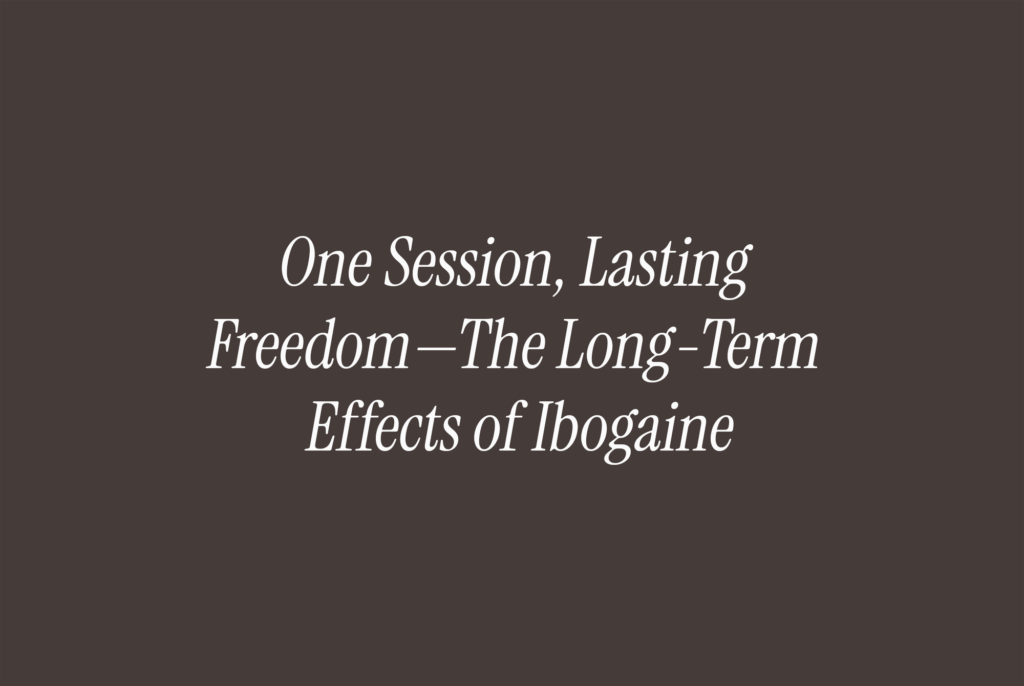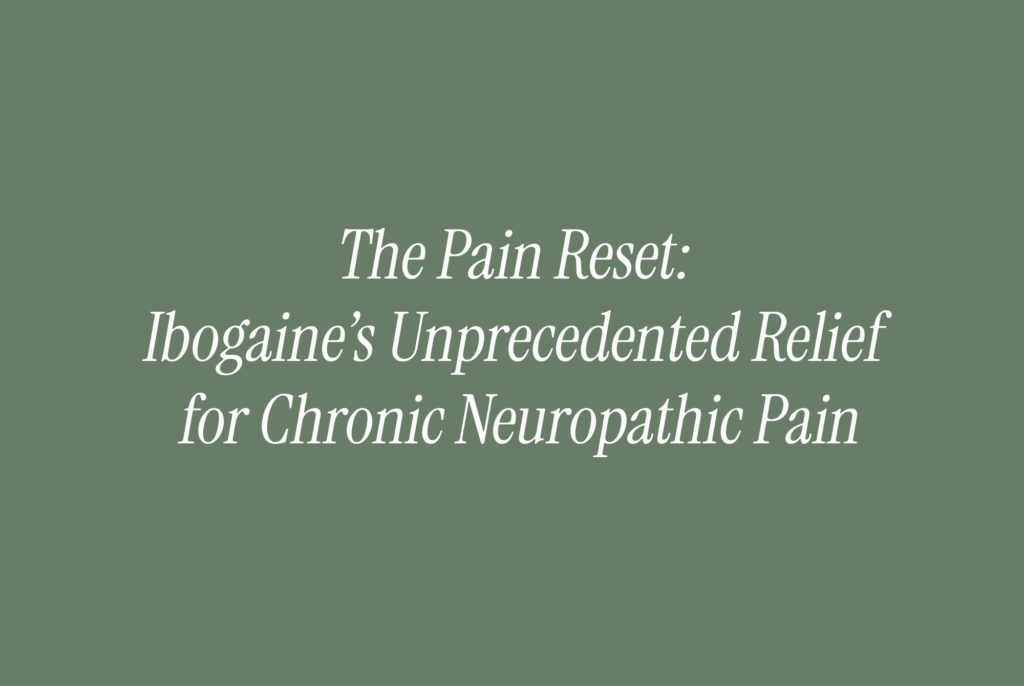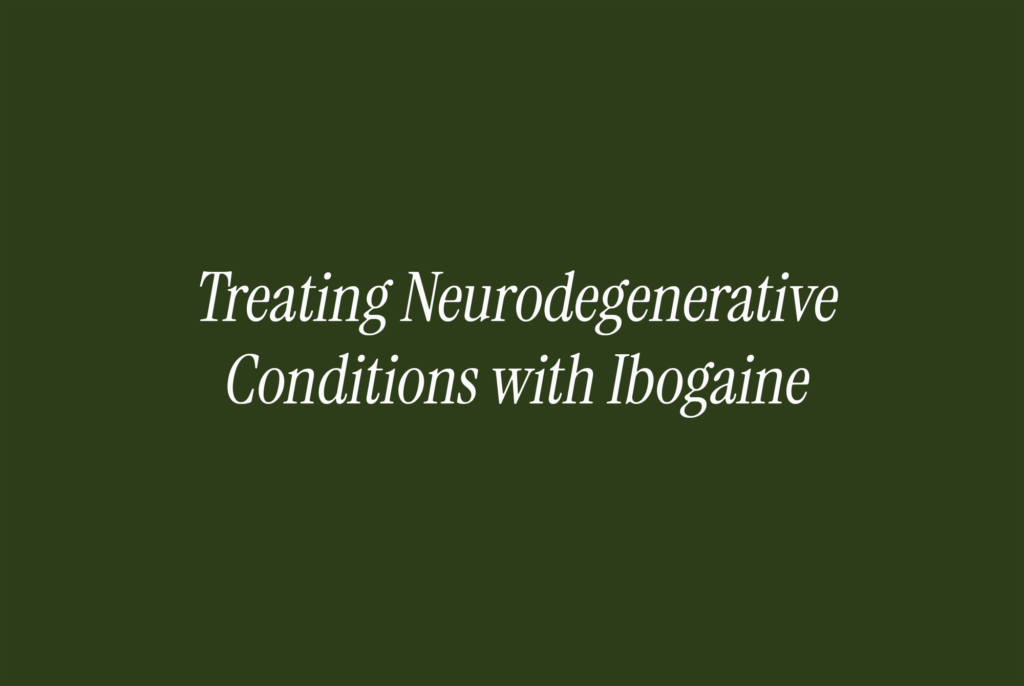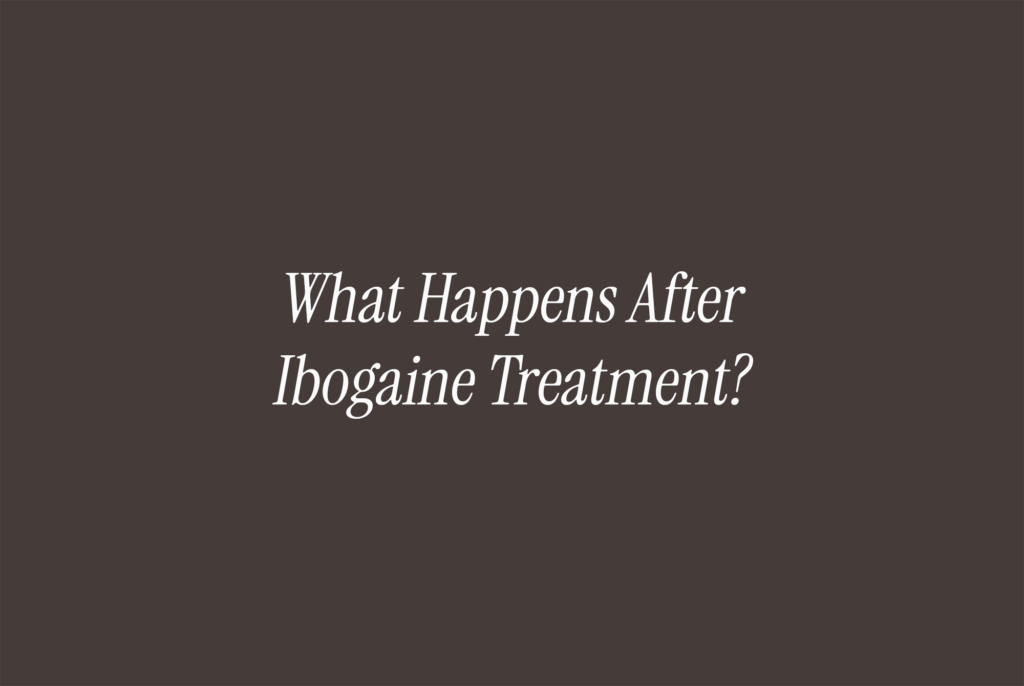Why Single-Dose Treatment Is Reshaping Addiction Care
Conventional addiction treatment is typically measured in months or years. Maintenance medications may be prescribed indefinitely, relapse is often anticipated, and long-term dependence on treatment systems is common. Ibogaine challenges this model by introducing a fundamentally different timeline.
Clinical observations and published research suggest that a single, medically supervised ibogaine treatment may significantly reduce withdrawal symptoms and drug craving, creating a window for recovery that begins within hours rather than months.
The Single-Dose Paradigm
Reports from American and European self-help communities first drew attention to ibogaine’s unusual effects: rapid relief from opioid withdrawal and a marked reduction in craving following a single administration. These early reports were later supported by preclinical animal models demonstrating ibogaine’s ability to interrupt addictive behaviors after one exposure.
Human observational research has echoed these findings. In a well-known clinical review, scientists examined outcomes in individuals treated with ibogaine for opioid dependence and reported that a single treatment was often sufficient to suppress acute withdrawal and reduce drug use for extended periods.
At The Iboga Wellness Institute, this single-dose model is paired with medical screening and structured support (Ibogaine Treatment Program) to ensure safety and maximize long-term benefit.
Sustained Effects Beyond Detox
The most striking aspect of ibogaine treatment is not only the rapid relief of withdrawal, but what follows afterward.
In a large observational study published in Frontiers in Pharmacology, Mash et al. (2018) found that individuals treated with ibogaine for opioid or cocaine dependence frequently achieved sustained reductions in use or abstinence months after a single treatment, particularly when combined with appropriate follow-up support.
Similarly, a Brazilian study examining outcomes in individuals with histories of cocaine, crack cocaine, alcohol, and cannabis use found that participants receiving one ibogaine treatment reported a median abstinence period of several months, with longer durations observed in those who underwent additional structured support.
These findings suggest that ibogaine’s effects extend well beyond the acute detox phase.
Noribogaine and the Neuroplastic Window
One explanation for ibogaine’s prolonged effects lies in its primary metabolite, noribogaine. While ibogaine itself is rapidly metabolized, noribogaine remains active in the body for days and has been shown to influence mood, craving, and emotional regulation.
Laboratory research has demonstrated that noribogaine promotes neurite growth in cortical neurons — a property associated with compounds now referred to as psychoplastogens, which enhance neuroplasticity.
Clinically, this may help explain why individuals often report sustained reductions in craving and improved emotional stability during the critical early days following treatment — a period when relapse risk is typically highest.
A Comprehensive Therapeutic Response
Ibogaine’s effects are not limited to withdrawal suppression alone. Two observational studies supported by the Multidisciplinary Association for Psychedelic Studies (MAPS) reported improvements in opioid withdrawal severity and reductions in substance use among individuals who had not responded to conventional treatments.
This is particularly relevant because many people seeking ibogaine treatment are not first-time treatment seekers. They are often individuals with long histories of relapse and limited success with existing treatment modalities.
Not a Cure — A Catalyst
It is important to be clear: ibogaine is not a cure for addiction. No single intervention can replace ongoing psychological care, lifestyle change, and recovery support.
What ibogaine appears to offer is a neurological and psychological reset — a temporary but meaningful shift that reduces withdrawal, softens craving, and increases psychological clarity. This creates an opportunity for individuals to engage more effectively with therapy, integration work, and long-term recovery planning.
At The Iboga Wellness Institute, this window of opportunity is supported through preparation, medical oversight, and structured post-treatment integration
Transitioning to Long-Term Recovery
In a clinical review of 191 individuals treated with ibogaine for opioid or cocaine dependence under medical supervision, researchers concluded that ibogaine may be effective for transitioning individuals from active dependence toward sobriety.
That word matters. Ibogaine opens the door — but lasting recovery depends on what happens next.
This is not simply detox. It is the beginning of a new trajectory.
References & Further Reading
- Alper, K. R., et al. (1999). Treatment of acute opioid withdrawal with ibogaine. American Journal of Addictions.
https://pubmed.ncbi.nlm.nih.gov/10506904/
- Mash, D. C., et al. (2018). Ibogaine detoxification transitions opioid and cocaine abusers between dependence and abstinence. Frontiers in Pharmacology.
https://pubmed.ncbi.nlm.nih.gov/29922156/ - Multidisciplinary Association for Psychedelic Studies (MAPS). Ibogaine observational studies and outcomes.
https://maps.org/research/ibogaine/


















